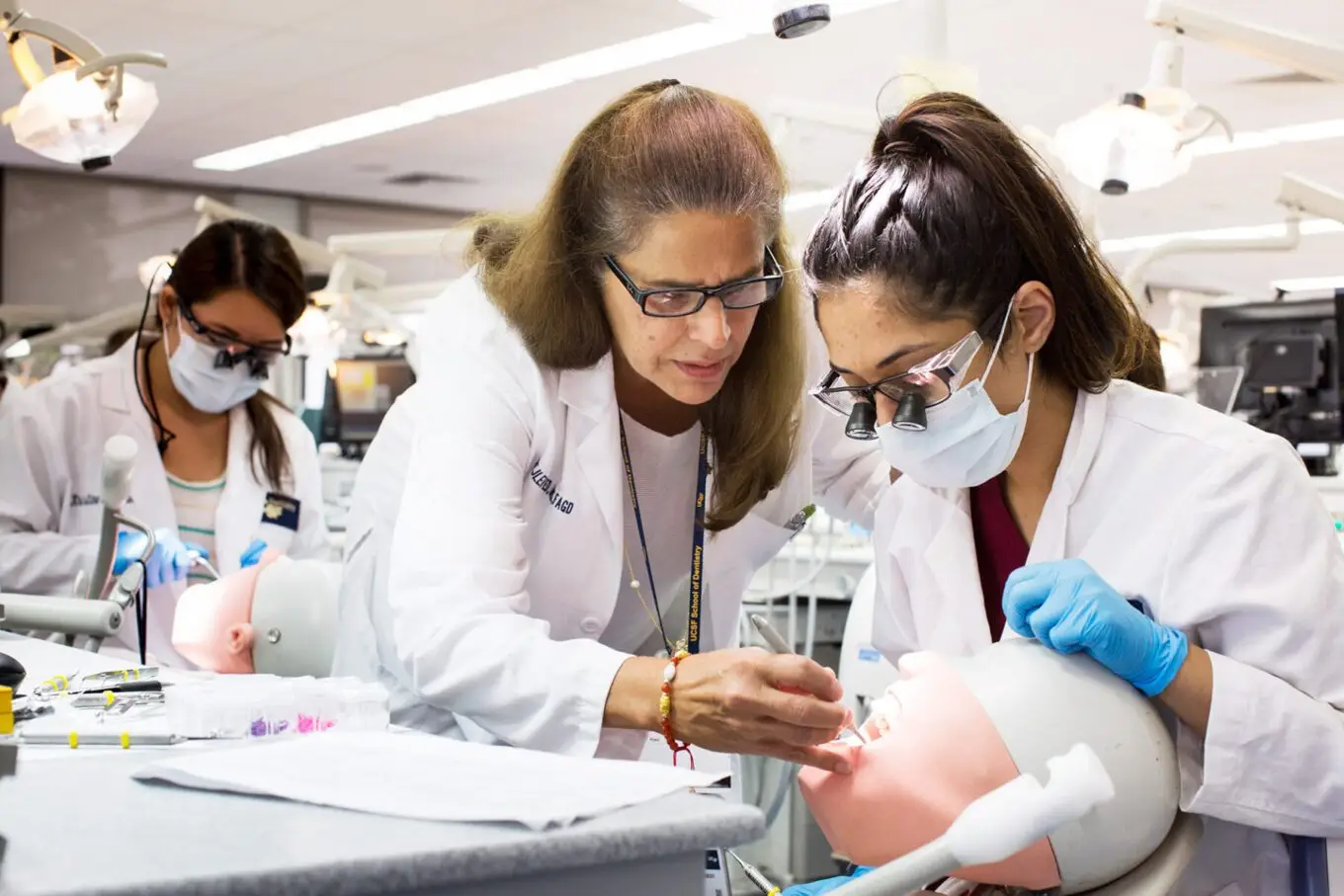
Are you wondering what the difference between a dentist and a general dentist is? You’re not alone! A lot of people don’t know the difference, but it’s an important distinction to make. Both dentists and general dentists can provide routine dental care, but there are some key differences.
General dentists typically have a broader range of training than dentists, and they may also offer other services like orthodontics. So if you’re looking for a dentist who can provide all the services you need, you’ll want to look for someone who is licensed as both a general dentist and a specialist in one or more areas.
Schaumburg Dentistry got the services that can help you. All you need to do is contact us today at (847) 985-8100!
Schaumburg Dentistry has both Dentists and General dentists on site so you can get the best possible care. If you’re not sure which type of dentist is right for you, our team can help. We offer comprehensive dental care, we will take care of your teeth and gums, and ensure that you have a healthy smile for years to come.
If you wish to learn more about what we do click on our services and you can go ahead check out their reviews to hear what our clients speak about our services.
Do You Have Any Questions About Schaumburg Dentistry? Go to our FAQ Section.
From preventive care to complex procedures, general dentists provide a wide range of services to their patients. Either in their private practice or with a larger organization. The average general dentist has 4 years of dental school under their belt.
Cosmetic dentistry, fillings, and extractions can be performed by general dentists. Patients can also receive oral hygiene instructions, or they can get their teeth cleaned. Most dental insurance plans cover such treatments at the same rate as when they are provided by a specialist dentist. The most common form of medical treatment for children and adults is general dentistry.
The general dentist is qualified to diagnose and treat a wide variety of dental conditions, such as cavities or gum disease. They can also diagnose and treat oral cancer. General dentistry facilities refer patients seeking orthodontic treatment to specialists in this field, although some may also possess additional training and experience in the field.
Dental surgery, like root canals, is also performed by a general dentist. The services they offer are similar to those of specialists, even though they typically practice in private practice or work for a large company.

General dentists provide a wide range of services crucial to your health, including:
This helps prevent the disease from spreading to your mouth and improves your oral health. Keeping your teeth clean professionally and having your teeth checked regularly (including diagnostic images such as x-rays) is fundamental to prevention. A general dentist may provide you with detailed instructions on improving your oral hygiene at home. If necessary, he or she may also recommend preventive treatments such as sealants. Moreover, if you lead an active lifestyle, you can have a custom mouthguard made by your dentist.
You can rely on your dentist to ensure that you receive timely and appropriate treatment when a problem is detected. A dental restoration consists of removing tooth decay and filling the affected tooth. It is likely the most common (and most effective) dental restoration. However, general dentists offer more than just restorative treatments.
When you suffer a dental trauma, such as a broken tooth, a loosened one, or one that was knocked out of your mouth, they are there to help. Patients with tooth pain or periodontal disease can be diagnosed and treated by general dentists. Additionally, they may help you with missing tooth treatment, crown or bridge placement, and denture fitting. Some also provide advanced dental treatments, such as root canal therapy, orthodontics, and dental implants.
There are several cosmetic procedures available in general dentistry that can give you the smile you’ve always wanted. This may include porcelain veneers, cosmetic bonding, or teeth whitening, among others. If you are interested in a brighter smile, talk to your general dentist about a smile makeover.
In many ways, your oral health reflects your overall health. In some cases, dental problems may be related to health issues in other parts of your body. For instance, untreated oral infections can lead to poorer control of diabetes, higher rates of cardiovascular disease, and complications during pregnancy. These and other dental disorders can be identified by general dentists and provided with appropriate treatment or referral when necessary.
A particular concern is obstructive sleep apnea, a potentially fatal condition that can sometimes be managed with an oral appliance. A general dentist can also provide nutritional counseling, advice on quitting tobacco, and general health and wellness information.
Need an urgent visit to the nearest Dentist in your area? Schaumburg Dentistry got all the services that can help you. All you need to do is contact us at (847) 985-8100 or book an appointment now!
What Does Dentist Mean? A dentist is a healthcare professional dedicated to diagnosing, preventing, and treating diseases and conditions related to teeth and gums. From simple preventative care to root canal procedures and crowns, dentists can provide a wide range of services. The word “dentist” derives from the Latin word “dens,” or “dentis”, meaning tooth.
A dentist is someone who has undertaken intense training to become a specialist in the treatment of oral health. Among their specialties is treating teeth and gum disorders. A dentist can perform routine cleanings, diagnose problems, fill cavities, or provide other services including root canal treatment to patients of all ages. The dentist can diagnose and treat issues related to gums, teeth, and even jawbone.
Dentists perform a variety of important tasks that help maintain oral health. Patients need to keep up with their oral care by getting regular checkups. Basic dental treatments can also be done at a regular dental office, in addition to general check-ups and exams. These procedures may include filling a tooth, performing a minor surgical procedure such as getting a tooth pulled, or simply cleaning and polishing teeth.
Patients are encouraged to brush and floss their teeth regularly and to go to the dentist for regular cleanings. By practicing these good habits, they can prevent tooth decay and gum disease.
The dental field contains several specialties that require specialized training, which results in a high level of expertise in certain areas. Some of these specialties are:

This is an area of dentistry dedicated to treating the internal tissues or “pulp” of the tooth which is mainly made up of nerves and blood vessels; an endodontist performs root canals and other procedures involving the inner tooth pulp.
It involves aligning the teeth and jaw; an orthodontist fits braces and treats disorders that involve misaligned teeth; it also deals with issues in and around the mouth area that may develop as the result of other health problems.
A periodontist is someone who specializes in treating gum disease and other gum conditions; he or she treats the area around the tooth, including the gums and other tissues.
Prosthodontists place implants to replace teeth that have been removed, as well as work with other prosthetics in the mouth.
Specialists in treating children’s teeth; may consult with other specialists when specific areas are affected (e.g. gum disease).
All general dentists have completed four years of undergraduate education and have earned a dental degree from an accredited institution. They’ve also satisfied the requirements (including testing and continuing education) of state licensing boards in all states where they wish to practice.
The initials DMD (Doctor of Dental Medicine) are used by a few dentists, whereas the initials DDS (Doctor of Dental Surgery) are used by others. The only distinction between Dentist and General Dentist is that one uses a higher title on his or her dental school’s degrees; their education and training are the same.
It is important to know the difference between dentists and general dentists before you decide on your oral health. General dentistry focuses on the prevention, diagnosis, and treatment of diseases that affect our teeth and gums while dental care includes many more facets such as cosmetic treatments like porcelain veneers or whitening services for natural stains.
The dentist vs. general dentist debate goes back centuries but we hope this blog post has helped you better understand these two professions in terms of their differences so you can choose which one suits your needs best!
Schaumburg Dentistry got the services that can help you. All you need to do is contact us today at (847) 985-8100!